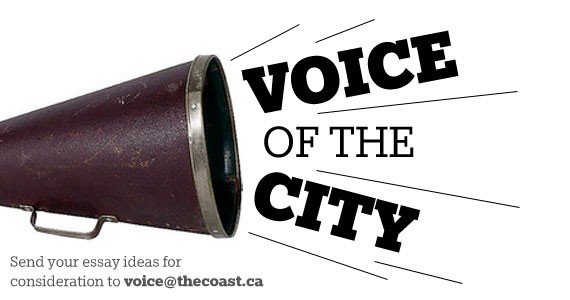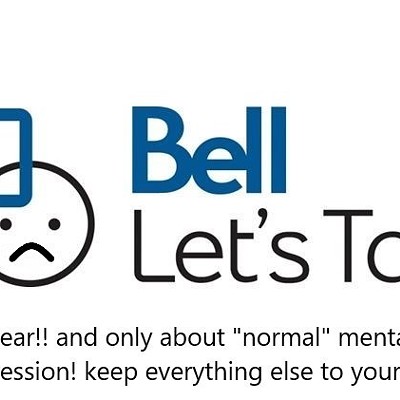When visiting other cities I'm both amazed and relieved the first time I am rolling down the street on my skateboard and see a police officer, as the officer hardly gives me a passing glance. But in Halifax I feel like I've robbed a bank if I make it to the store and back on my board with a carton of milk. This constant fear of police attention is universal for Halifax skateboarders. The skateboard is a simple object that can play a variety of roles in a person's life: a hobby, a free and active mode of transportation, a forgotten plaything of their past. But for countless others it is an object that determined the entire course of their lives. These are the people who may not have been cut out for organized sports for financial, social or physical reasons; the people who may have used it to escape a painful and abusive childhood; the people who sidestepped a future of crime or substance abuse by being introduced to a new group of people with a mutual positive interest.
Skateboarding allowed me to come out of my shell and finally make friends. It introduced me to an entire world of music and artwork, and it has taken me on trips to places I would've never seen otherwise. This simple object was the only thing that kept me going from the age of 18 on as I watched my mother fade away as a victim of Alzheimer's and my entire family self-destruct in the process.
Halifax has its share of problems, some organizational and some social. One of the most glaring problems in Halifax is violent crime. As a city we need to be doing everything we can to repair the relationship between young people and the police. The current legislation regarding skateboarding is creating a tremendous amount of very negative first encounters with police for the youth of Nova Scotia. These are the very people that need to be able to trust the police.
In the 2009 article in The Coast, "Skate free and/or die," we hear from Joan Massey, a supporter of Bill 86, which made helmets mandatory while riding skateboards, rollerblades and scooters, and fines violators through the Motor Vehicle Act. She mentions that the government was using the $570 million cost of all injuries in Nova Scotia to determine that these three sports needed a mandatory helmet law. The ratio of head injuries to un-helmeted participants of these sports is not stated.
One year before the MVA was stretched to include skateboard protective equipment, there was a study published by Dalhousie's Department of Emergency Medicine and EHS Nova Scotia Trauma, titled Comprehensive Report on Injuries in Nova Scotia, written by S. Ackroyd-Stolarz and J.M. Tallon. This study has a full list of head injuries in Nova Scotia from 1992-1999. In the 16-34 age group from 1992-1999 there were 421 head injuries caused by generic falls, 1013 from assault, and 655 from car accidents. Bikes were the cause of 34 head injuries in this seven-year period. Other transportation, which would include skateboards, was the cause of 25 head injuries.
This paper was available during the time that the bill for skateboard helmets was being debated. It's clear, however, that the law was not based on actual science, but rather on the misconceptions and bias of our legislators regarding the actual safety of different activities. The stats are clear: skateboarding is far safer than many activities that are more socially acceptable.
The skateboard helmet law has no justification. People have always used protective gear when riding terrain that warrants it. We skateboarders simply want to be treated like adults and trusted with our own safety when doing the thing we've done daily for the better part of our lives, the same way we can choose to enter a NSLC, a smoke shop or drive a car---all things that carry an exponentially higher risk than skateboarding.
I will continue to look toward the future and hope to see a time where the province of Nova Scotia and the city of Halifax take full advantage of their facilities and its population to help grow the community and advocate healthy living.
Nate Oliver is a front-end web developer and skateboarder from Halifax. His petition to amend/repeal the skateboarding helmet law is located at chn.ge/X42b2t.
Send your essay ideas for consideration to [email protected]

















